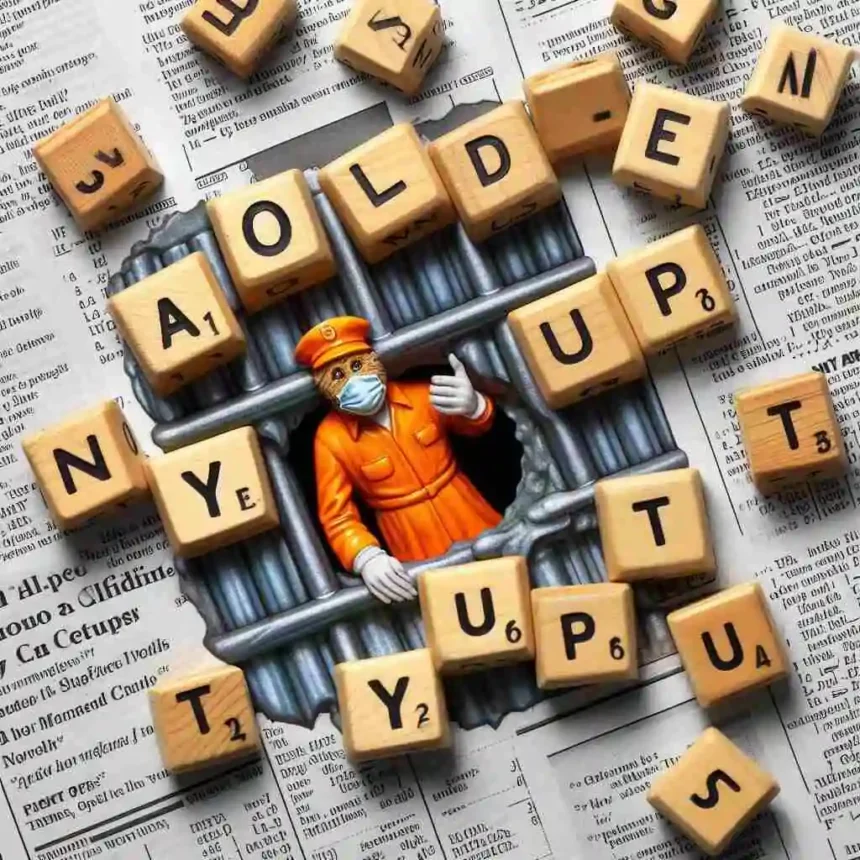The phrase “holed up” has gained significant attention, especially in the context of the New York Times (NYT). Whether you’re a language enthusiast, a crossword puzzle solver, or simply curious about its meaning, this article will provide a comprehensive overview of the term, its usage, and why it has become a trending topic.
What Does “Holed Up” Mean?
The term “holed up” is an idiomatic expression that refers to someone staying in a secluded or hidden place, often for safety, privacy, or to avoid something. It is commonly used in contexts such as:
- Hiding from danger: “The fugitives holed up in an abandoned cabin.”
- Seeking solitude: “She holed up in her room to finish her novel.”
- Avoiding social interaction: “He holed up at home during the pandemic.”
The phrase evokes imagery of someone retreating into a “hole” or a safe space, making it a vivid and relatable expression.
Why Is “Holed Up” Associated with the NYT?
The connection between “holed up” and the New York Times (NYT) often stems from its frequent appearance in:
- NYT Crossword Puzzles
The phrase “holed up” is a popular clue or answer in the NYT crossword puzzles. Its versatility and unique structure make it a favorite among puzzle creators and solvers. - NYT Articles
The New York Times frequently uses idiomatic expressions like “holed up” in its articles to add color and relatability to its storytelling. For example, during the COVID-19 pandemic, the phrase was often used to describe people isolating themselves at home. - Cultural References
The NYT often explores cultural and linguistic trends, and “holed up” has been featured in articles discussing idioms, language evolution, and societal behaviors.
The Popularity of “Holed Up” in Modern Times
The phrase “holed up” has seen a resurgence in popularity due to several factors:
1. Pandemic-Driven Usage
During the COVID-19 pandemic, millions of people were “holed up” in their homes due to lockdowns and social distancing measures. This led to a spike in the usage of the term across media platforms, including the NYT.
2. Crossword Puzzle Enthusiasts
The NYT crossword puzzle community has contributed to the phrase’s popularity. Solvers often encounter “holed up” as a clue or answer, sparking discussions and searches online.
3. Pop Culture and Media
Movies, TV shows, and books often depict characters “holed up” in various scenarios, from survival stories to romantic getaways. The NYT frequently reviews such media, further associating the phrase with its brand.

How to Use “Holed Up” in Everyday Language
If you’re looking to incorporate “holed up” into your vocabulary, here are some examples:
- Casual Conversation:
“I was holed up in my room all weekend binge-watching my favorite series.” - Professional Context:
“The team holed up in the conference room to finalize the project before the deadline.” - Creative Writing:
“The protagonist holed up in a remote cabin, seeking refuge from the chaos of the city.”
Fun Facts About “Holed Up”
- Etymology: The phrase originates from the idea of animals retreating into their burrows or holes for safety.
- Crossword Trivia: “Holed up” is often paired with clues like “hiding out” or “in seclusion.”
- Synonyms: Similar phrases include “hunkered down,” “secluded,” and “sheltered.”
Table: Synonyms and Contexts for “Holed Up”
| Synonym | Context | Example Sentence |
|---|---|---|
| Hunkered down | Seeking safety or shelter | “They hunkered down in the basement during the storm.” |
| Secluded | Isolated for privacy | “She stayed secluded in her study to focus on her work.” |
| Sheltered | Protected from external elements | “The hikers sheltered in a cave during the rain.” |
| Isolated | Physically or socially separated | “He felt isolated while living in a remote village.” |
Why You Should Care About Linguistic Trends
Understanding phrases like “holed up” not only enriches your vocabulary but also helps you connect with cultural and linguistic trends. The NYT, as a leading publication, often highlights such trends, making it a valuable resource for language enthusiasts.
For more insights into trending topics and linguistic phenomena, visit TrendsMag, your go-to source for the latest in culture, language, and lifestyle.
Conclusion
The phrase “holed up” is more than just an idiom; it’s a reflection of human behavior and societal trends. Its association with the New York Times, particularly through crossword puzzles and articles, has cemented its place in modern language. Whether you’re solving a puzzle, reading an article, or simply expanding your vocabulary, “holed up” is a phrase worth knowing.
For more articles like this, check out TrendsMag and stay updated on the latest trends and insights.





